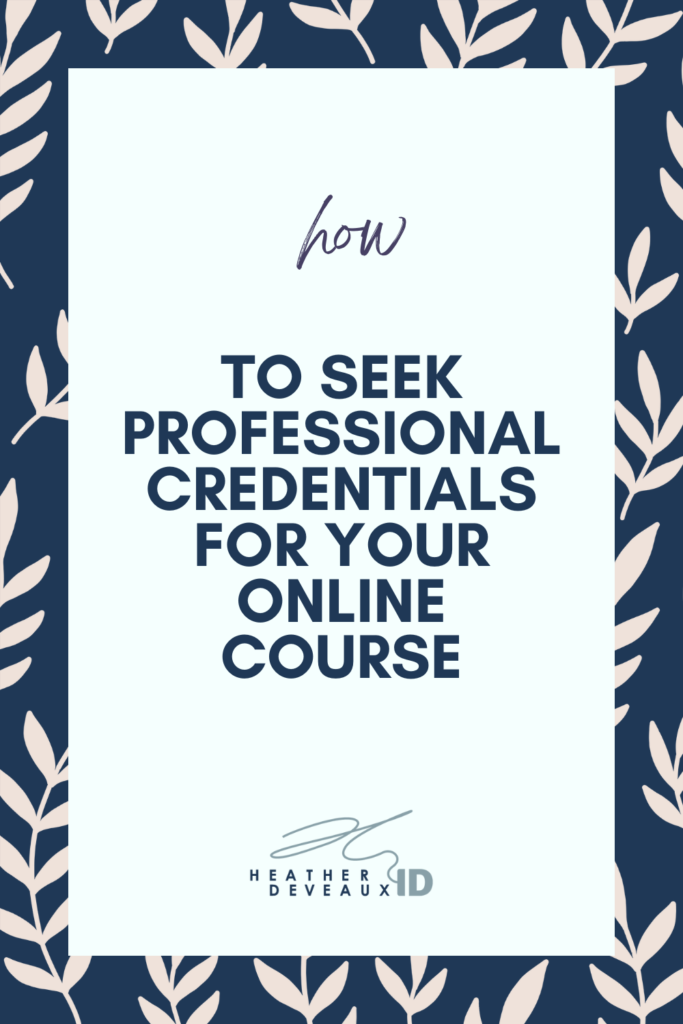Want to Offer Microcredentials for Your Online Course?
Microcredentials are not new. But if you’re thinking about creating an online course with the hopes of having your course recognized for credit, and this all feels new, this article is for you.
The knowledge economy has made it easy for people to access information, training, certifications, and even credentials without leaving the comfort of their homes. Online learning has become mainstream seemingly overnight, but the truth is that online learning has been around much longer than the internet gives it credit for – think distance learning, televised classes from local universities on cable tv, and mailorder courses.
While not truly online, these forms of delivery provided the bridge to gap learning for many people for many years. Yet, if someone told you they received a degree through mail order, you might roll your eyes. That’s because even though the cool kids are talking about different ways to obtain credentials, the working world hasn’t caught up to the idea of getting your education online fully. And when it comes to microcredentials, the question mark gets even bigger.
Knowledge is Consumable
But here’s the thing nobody is talking about when it comes to the knowledge economy – it’s consumable. Consumable in the way paper is consumable. The way ketchup bottles run dry: consumable meaning not evergreen. But we treat online courses, programs, and the deliverables associated with them as evergreen. In fact, evergreen has become a business model. But it’s not real or true: knowledge is dynamic. It changes. And it needs to be updated eventually.

We also need to address the fact that what you create will change over time. It’s never one-and-done. When clients work with me, I provide them with systems to update and maintain their courses on a schedule. I do this because even though I had you a fully-baked pie of an online course, you’ll feel the urge to start making changes. You’ll never escape updates and edits if you don’t get a system together. You’ll always be in edit mode. The second you get feedback about your course, you’ll feel the urge to make changes. But I encourage you to follow a schedule.
Knowledge changes and require updating. This is especially true in online courses. It makes obtaining microcredentials a bit tricky. But I want to provide you with some helpful steps you can follow to reduce the workload and get your program in front of audiences faster.
Focus on a Foundational Set of Skills
One of the ways I help clients create online courses quickly is to focus on a specific problem to solve. By choosing one overarching problem to focus on, we give ourselves a roadmap to follow in the creation process. During ideation and planning, we can easily ask questions to make decisions. We measure whether or not that topic leads learners to the finish line. And if it doesn’t we can leave it out. When it comes to microcredentials, the same is true. A course seeking accreditation should focus on one key skill set or topic.
Many inexperienced course creators want to provide their entire knowledge base in one online course. But that’s not realistic, or helpful. Focusing on one clear deliverable through the teaching of skills or knowledge is best. By focusing on key skill sets, the need to update and maintain the course is greatly reduced. This is important because you don’t want to have to wait for approvals all the time to re-release your course.
Find a Suitable Credentialing Partner
Depending on the intended audience for your online course, the organization you choose to approach about accreditation may vary. For example, if you want to provide professional development courses to executive-level managers, you may consider approaching a continuing education department at a local university. Or, if you want to create online courses for mental health and awareness, you may consider approaching a professional association to assess and approve your course for credits.
Whatever direction you choose should align with where your audience is going to be already seeking credentials. If professional associations are already approving and green-lighting your competitor’s courses, there’s no reason they can’t consider your courses – and don’t fool yourself into thinking there is a reason. Professional associations prefer to have a variety of content to provide opportunities for professional credits to be obtained.

Create a Roadmap of Credentials
Most clients I work with get excited about creating more than one course, even before the first course is in the world. And that’s great. But when it comes to creating online courses, more is not always more. That’s why I spend time with my clients creating a roadmap of where they can take their audience and learners in the form of online courses. Simply downloading your brain into an online course and calling it a suite or product package is not going to cut it.
Customers are becoming more aware of the noise and uselessness of many online courses. When you can show your audience where you can take them through the use of a roadmap or learning plan, it becomes easier for them to absorb and understand why they need to learn a specific skill at a specific time. This makes your job easier and ensures that your online course fits into a bigger plan.
Microcredentials for Small Business Owners
If you run a small business or are a digital entrepreneur wanting to create online courses, you might consider microcredentials as a way to boost your own brand and authority. If you approach a credentialing partner, you need to be clear on what you can offer them.
Getting a professional credit stamp on your online course shouldn’t be a one-way service. By building relationships with credentialing partners and by getting to know what they need to offer their members, you’ll be better positioned to create better courses and ease the credentialing process for yourself and your business.
Seeking Microcredentials? Get Started Now.
Before you can seek a microcredential from a governing body or professional association, you need to have an online course for them to review. I’ve worked with organizations to create courses that meet the standards of credentialing partners.
You’ve got an idea. I’ve got a set of systems and frameworks that help bring those ideas to life. The first step in seeking credentialing is to create the course. If you don’t want to make this journey alone, book a call with me now.







